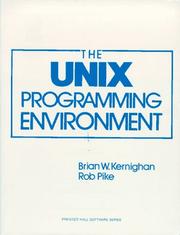| Listing 1 - 10 of 33 | << page >> |
Sort by
|
Book
ISBN: 9780691176543 069117654X Year: 2017 Publisher: Princeton, N.J. Princeton University Press
Abstract | Keywords | Export | Availability | Bookmark
 Loading...
Loading...Choose an application
- Reference Manager
- EndNote
- RefWorks (Direct export to RefWorks)
Computers are everywhere. Some of them are highly visible, in laptops, tablets, cell phones, and smart watches. But most are invisible, like those in appliances, cars, medical equipment, transportation systems, power grids, and weapons. We never see the myriad computers that quietly collect, share, and sometimes leak vast amounts of personal data about us. Through computers, governments and companies increasingly monitor what we do. Social networks and advertisers know far more about us than we should be comfortable with, using information we freely give them. Criminals have all-too-easy access to our data. Do we truly understand the power of computers in our world?Understanding the Digital World explains how computer hardware, software, networks, and systems work. Topics include how computers are built and how they compute; what programming is and why it is difficult; how the Internet and the web operate; and how all of these affect our security, privacy, property, and other important social, political, and economic issues. This book also touches on fundamental ideas from computer science and some of the inherent limitations of computers. It includes numerous color illustrations, notes on sources for further exploration, and a glossary to explain technical terms and buzzwords.
Computer. Automation --- Computer science --- Computer networks --- Security measures --- Computer security --- Computer systems --- Online social networks --- Informatique --- Réseaux d'ordinateurs --- Sécurité informatique --- Informatique -- Gestion --- Réseaux sociaux (Internet) --- Popular works. --- Management --- Ouvrages de vulgarisation --- Sécurité --- Mesures --- Online social networks.
Book
ISBN: 9781695978553 Year: 2020 Publisher: [United States] : Kindle Direct Publishing,
Abstract | Keywords | Export | Availability | Bookmark
 Loading...
Loading...Choose an application
- Reference Manager
- EndNote
- RefWorks (Direct export to RefWorks)
"Since its creation in a Bell Labs attic in 1969, the Unix operating system has spread far beyond anything its creators could have imagined. It has led to the development of a great deal of innovative software, influenced myriad programmers, and changed the path of computer technology. This book is part history and part memoir. It tells the story of the origin of Unix, explaining what Unix is, how it came about, and why it matters. Accessible to non-speciaists, the book is written for anyone with an interest in computing or the history of inventions." [Back cover]
Book
ISBN: 069120909X 9780691209098 Year: 2020 Publisher: New Jersey: Princeton university press,
Abstract | Keywords | Export | Availability | Bookmark
 Loading...
Loading...Choose an application
- Reference Manager
- EndNote
- RefWorks (Direct export to RefWorks)
Numbers are often intimidating, confusing, and even deliberately deceptive―especially when they are really big. The media loves to report on millions, billions, and trillions, but frequently makes basic mistakes or presents such numbers in misleading ways. And misunderstanding numbers can have serious consequences, since they can deceive us in many of our most important decisions, including how to vote, what to buy, and whether to make a financial investment. In this short, accessible, enlightening, and entertaining book, Brian Kernighan teaches anyone―even diehard math-phobes―how to demystify the numbers that assault us every day. Giving you the simple tools you need to avoid being fooled by dubious numbers, « Millions, Billions, Zillions » is an essential survival guide for a world drowning in big―and often bad―data
Book
ISBN: 9780691182773 Year: 2018 Publisher: Princeton, N.J. Princeton University Press
Abstract | Keywords | Export | Availability | Bookmark
 Loading...
Loading...Choose an application
- Reference Manager
- EndNote
- RefWorks (Direct export to RefWorks)
Book
Year: 1992 Publisher: Reading, Mass. Paris Mexico City Addison-Wesley Pub. Co.
Abstract | Keywords | Export | Availability | Bookmark
 Loading...
Loading...Choose an application
- Reference Manager
- EndNote
- RefWorks (Direct export to RefWorks)
Book
ISBN: 9780691190136 Year: 2018 Publisher: Princeton, NJ
Abstract | Keywords | Export | Availability | Bookmark
 Loading...
Loading...Choose an application
- Reference Manager
- EndNote
- RefWorks (Direct export to RefWorks)
Book
ISBN: 9781400884803 Year: 2017 Publisher: Princeton, NJ
Abstract | Keywords | Export | Availability | Bookmark
 Loading...
Loading...Choose an application
- Reference Manager
- EndNote
- RefWorks (Direct export to RefWorks)
Digital
ISBN: 9780691190136 9780691182773 Year: 2018 Publisher: Princeton, N.J. Princeton University Press
Abstract | Keywords | Export | Availability | Bookmark
 Loading...
Loading...Choose an application
- Reference Manager
- EndNote
- RefWorks (Direct export to RefWorks)
Multi
ISBN: 9781400884803 9780691176543 Year: 2017 Publisher: Princeton, N.J. Princeton University Press
Abstract | Keywords | Export | Availability | Bookmark
 Loading...
Loading...Choose an application
- Reference Manager
- EndNote
- RefWorks (Direct export to RefWorks)

ISBN: 0139376992 013937681X 9780139376993 9780139376818 Year: 1984 Volume: vol *10 Publisher: Englewood Cliffs: Prentice Hall (N.J.),
Abstract | Keywords | Export | Availability | Bookmark
 Loading...
Loading...Choose an application
- Reference Manager
- EndNote
- RefWorks (Direct export to RefWorks)
computerbesturingssystemen --- Unix --- OS (operating system) --- Computer architecture. Operating systems --- UNIX (Computer file) --- UNIX (Computerbestand) --- UNIX (Fichier d'ordinateur) --- UNIX (Computer operating system) --- Electronic digital computers --- UNIX (Système d'exploitation des ordinateurs) --- Programmation des ordinateurs --- Programming --- Computer programming --- 681.3*D4 --- Computers --- Electronic computer programming --- Electronic data processing --- Programming (Electronic computers) --- Coding theory --- Operating systems--See also {681.3*C} --- Computer programming. --- UNIX (Computer file). --- 681.3*D4 Operating systems--See also {681.3*C} --- UNIX (Système d'exploitation des ordinateurs) --- Electronic digital computers - Programming. --- BASIC (Computer program language) --- Infographie
| Listing 1 - 10 of 33 | << page >> |
Sort by
|

 Search
Search Feedback
Feedback About UniCat
About UniCat  Help
Help News
News